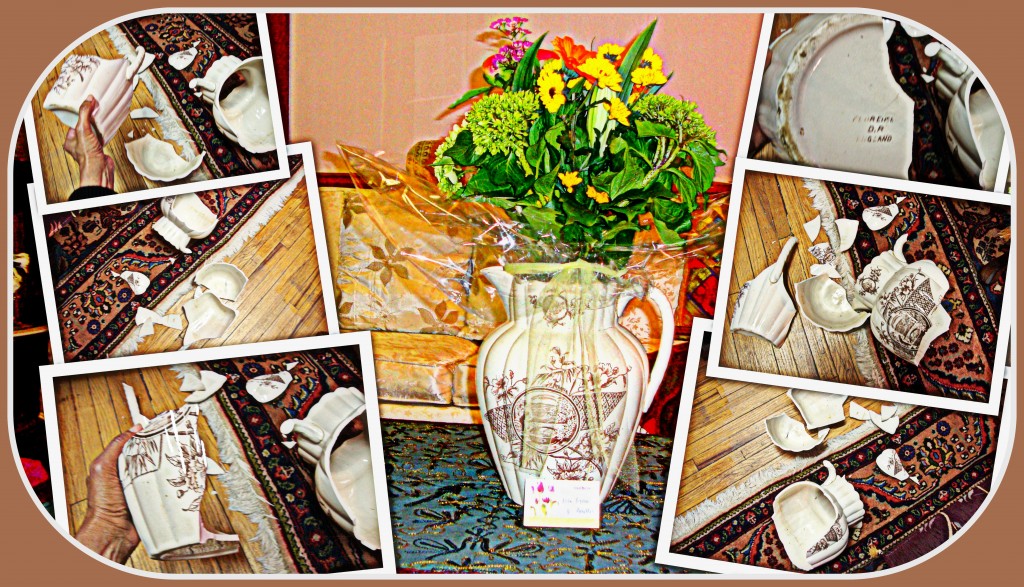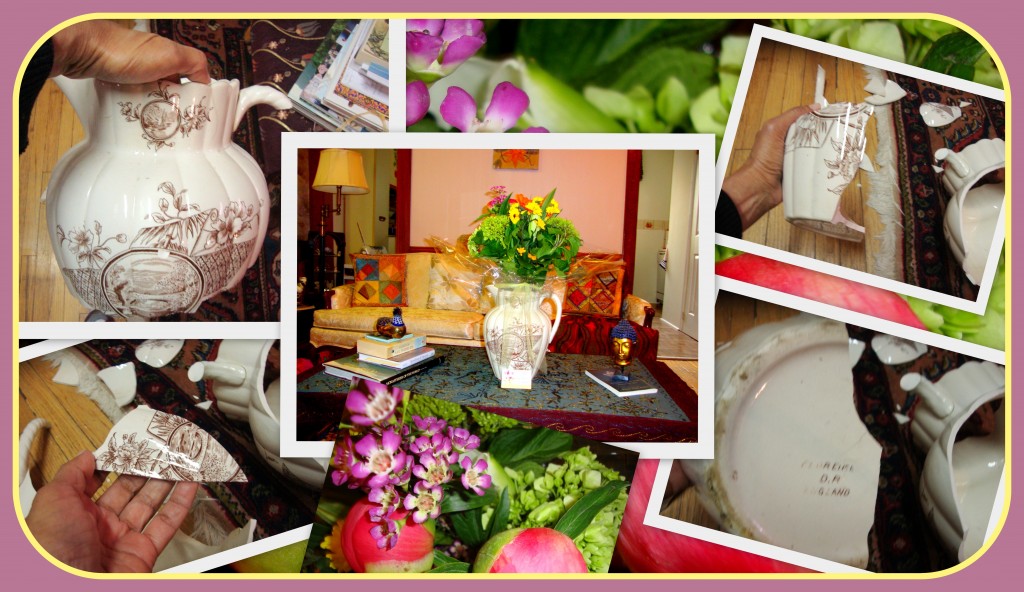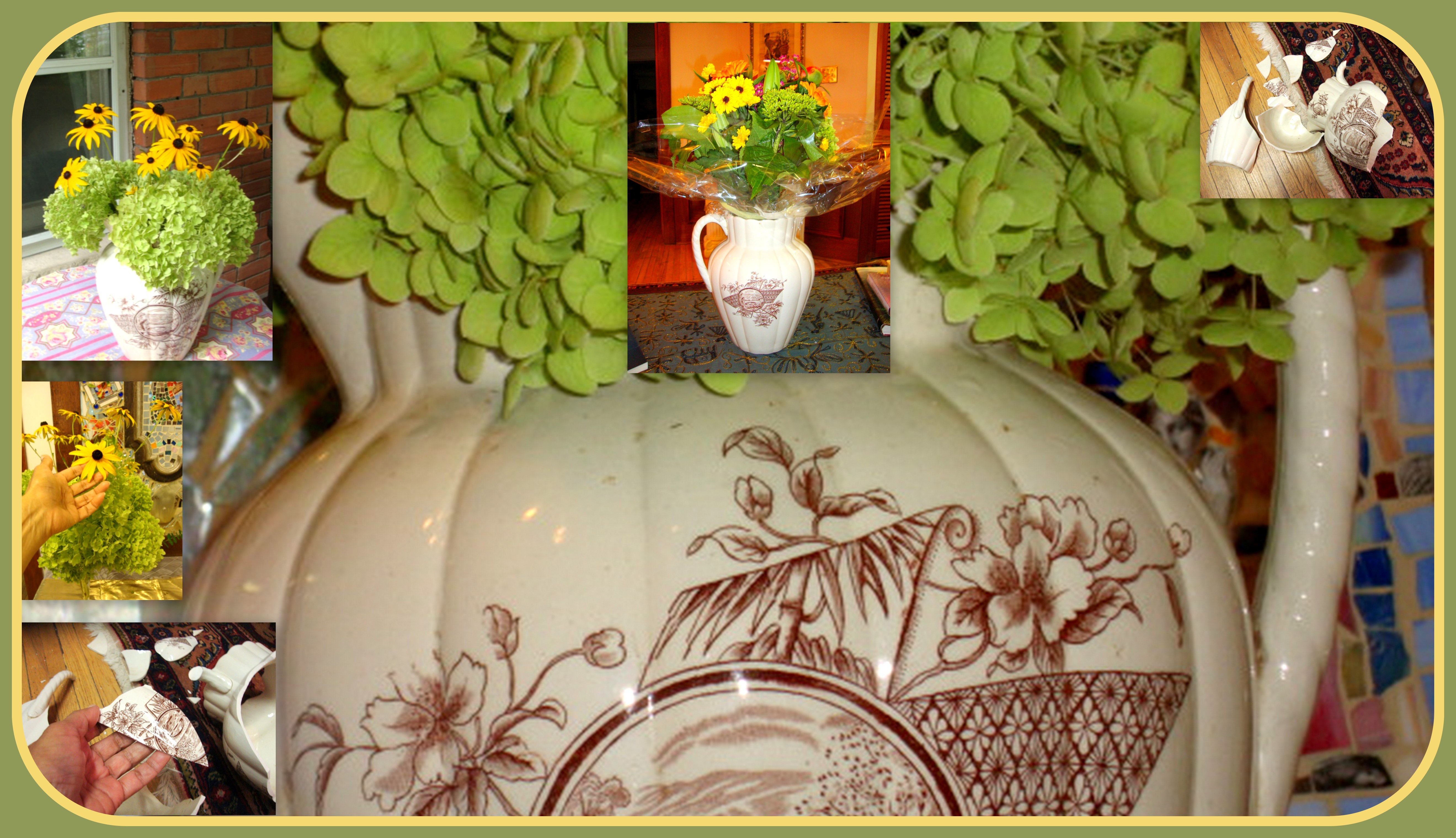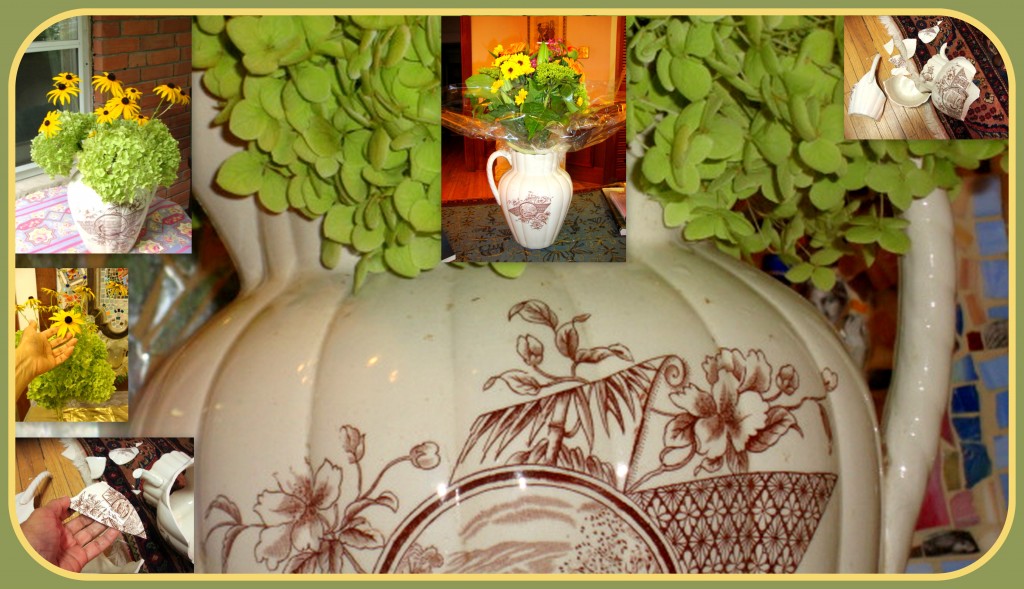“Don’t grieve. Anything you lose comes round in another form.”
― Rumi
 I accidentally knocked over one of my favorite vases which has served me well for many years. As you can see in the above collage, it’s a very beautiful one. You can also see that it was broken into many pieces and beyond repair. I was disappointed but not devastated. Whether that has to do with the aging process and the “letting go” stage of life or some other process at work is not quite clear to me.
I accidentally knocked over one of my favorite vases which has served me well for many years. As you can see in the above collage, it’s a very beautiful one. You can also see that it was broken into many pieces and beyond repair. I was disappointed but not devastated. Whether that has to do with the aging process and the “letting go” stage of life or some other process at work is not quite clear to me.
However, as one who likes to capture images and a blogger, I immediately reached for my camera and started to take pictures of the broken vase. I held several of the pieces and admired the art work even in it’s broken state. I also thought that these broken shards might be grist for the mill for a post although I didn’t quite know how.

― Rumi, The Essential Rumi
My own story around these broken pieces of a vase is that when material things get broken, it’s not that bad. These things are replaceable. The far greater loss is when we experience brokenness in our own lives and the life of loved ones. These might be sickness, death, broken relationships, or financial setbacks. “A life loss is a separation from a significant person, place, item, or event. There are small life losses and major life losses. Small life losses might include a change in plans, a frustration, a misplaced item, a forgotten activity or event, or a disappointment. Major life losses might include a divorce, a move to a different city or location, the death of a person or pet, a severe illness, a catastrophic event, or a violent experience. All persons experience numerous life losses, small and major, throughout their lives. To cope with and resolve all life losses, people need to develop skills through which they process the cognitive and emotional impact of the loss and incorporate methods of resolution or completion within their lives. People who can incorporate each loss in a positive way in their life develop strength of character and self-confidence which helps them cope with other losses.” (The Stephan Center)
Putting together the broken pieces of our own lives is an arduous process that requires a lot of hard work and patience combined with strong support systems. We often wonder through the process whether and when the long night of sorrow will end. Will we be happy again?
“Sorrow prepares you for joy. It violently sweeps everything out of your house, so that new joy can find space to enter. It shakes the yellow leaves from the bough of your heart, so that fresh, green leaves can grow in their place. It pulls up the rotten roots, so that new roots hidden beneath have room to grow. Whatever sorrow shakes from your heart, far better things will take their place.”
― Rumi
From my life experience and observation of the experiences of others, after a certain time, new experiences follow. The person who was devastated by a divorce falls in love again and marries someone else. Another person who had a bad prognosis after cancer treatment goes into remission. The neighbor who had the miscarriage becomes pregnant again and brings the baby to full term, and so on. Life gives second chances and even if in a particular situation, there isn’t a second chance, there’s a different kind of learning. Persons living with cancer have told me how much the illness is teaching them. Through the brokenness, there is transformation.
“Every great loss demands that we choose life again. We need to grieve in order to do this. The pain we have not grieved over will always stand between us and life. When we don’t grieve, a part of us becomes caught in the past like Lot’s wife who, because she looked back, was turned into a pillar of salt. Grieving is not about forgetting. Grieving allows us to heal, to remember with love rather than pain. It is a sorting process. One by one you let go of the things that are gone and you mourn for them. One by one you take hold of the things that have become a part of who you are and build again.” ~ Rachel Naomi Remen
We don’t choose the broken pieces that come to us in life but they come anyhow. Rumi says “don’t grieve” and Rachel Naomi Remen says “we need to grieve.” These are all insights and like everything else in life, we need to sift through and decide what makes sense to us and what doesn’t. This is what has evolved for the story “Broken Pieces” that has come out of my broken vase.


